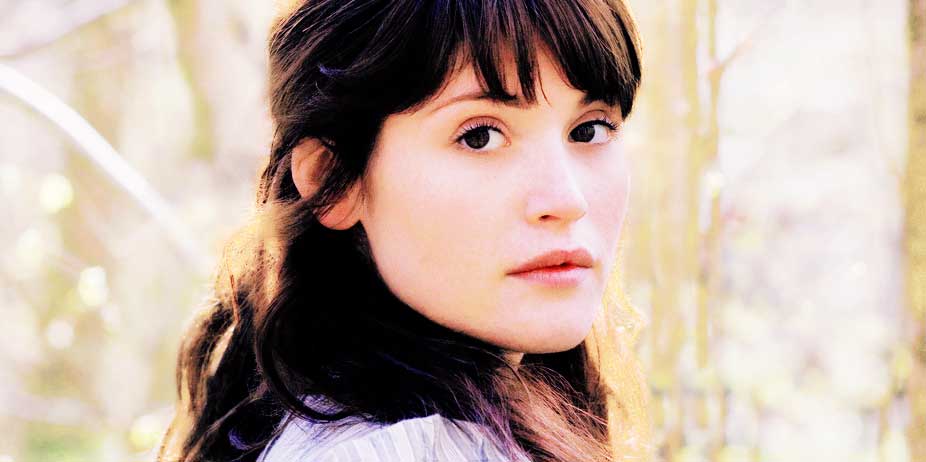
Tess of the D'Urbervilles (2008)
What makes a classic novel a classic? No one really knows the answer, save that they are unforgettable stories that resonate with our souls. Thomas Hardy's book Tess of the D'Urbervilles was a controversial work in its day for its themes of harsh Victorian ideals, prejudices, and the struggle one woman has to maintain her sanity and peace of mind in an increasingly hostile world. This adaptation is much more emotional than those that have come before it, but not for anyone unfamiliar with the dark nature of the source material.
Walking down the road one spring morning, Mr. Durberfield happens to encounter the local minister of the parish, who tips his hat and calls him "sir." Curious as to this unusual behavior, Durberfield manages to coax a story out of the cleric that links his family name to D'Urberville, who were once landowners and members of the gentry. Eager to make use of this recent discovery, when the large, impoverished family is stricken with a financial disaster, he and his wife decide to send their eldest daughter, Tess (Gemma Atterton) to enlist the assistance of the D'Urbervilles in the next county. Though she despises the thought of begging for assistance, Tess takes responsibility for her own involvement in their situation and makes the journey. It does not take long for her to encounter her "cousin" Alec (Hans Matheson), who is intrigued with this beautiful, dark-haired country virgin. Feeding her strawberries and sending her home with a vow to do something to be of assistance, Alec's motives are not entirely clear.
Too innocent to suspect any ill of him, Tess becomes a member of his mother's household as a servant. The other young women on the estate are unfriendly to her, and one evening there is an altercation between them on the roadway back from town. Not wanting to leave her alone with them, Alec offers her a ride home but they are soon lost in the wood. Tess is taken advantage of and her humiliation and guilt causes her to return home, ashamed of what she has done. Victorian ideals make her an outcast when a son is born, but she strives to put everything behind her and even hopes for a faint trace of happiness when it becomes apparent that a local boy, Angel Clare (Eddie Redmayne) is falling in love with her. The result is a somewhat depressing story of one woman's struggle to overcome the past and find true happiness.
It's interesting to note that Thomas Hardy once said that he despised both Alec and Angel for different reasons. Alec because he was caddish, and Angel because he could not live up to his name. Both men grievously wrong Tess in one way or another, something that becomes all too apparent in this adaptation. I have never much cared for this story but was surprised with how much this particular retelling resonated with me. True, its plot devices and twists are no less devastating than other adaptations, but it seemed not to wallow as much in her sorrows, but show different aspects of her life. That being said, it is not a happy film or one that will leave you smiling; the outcome is more than likely to be a torrent of tears. Atterton is lovely in the leading role, with just the right amount of strength and vulnerability to give Tess an unusual air of confidence and desperation. I am not a fan of Matheson in anything, but his Alec was excellent. I do feel, however, that the scriptwriters made a poor decision in choosing to assume that he raped Tess, since his behavior toward her would make more sense if it were like the novel: ambiguous. There is a host of supporting actors that are all quite good, and a fair number of characters that you want to slap around, like any good costume drama.
Unfortunately, this adaptation is also far more explicit than the earlier version with Justine Waddell. Tess's rape is excruciating to watch, for it is extremely graphic, as is a later nude love scene between a married couple. We see a man's nearly-naked body only covered by a sheet, and glimpses of partial and rear nudity in the final episode. It is implied that a woman is living as a man's mistress. A body is found with a bloodied knife sticking out of it. There is a mild spattering of language and no violence. A cleric expresses sorrow at the death of a "bastard child," but refuses to bury it in consecrated ground or give it a funeral. I was pleased that in this adaptation, Alec's quitting of the clergy was noted, unlike other versions that paint him as a cleric in the mind of a viewer while he seeks to live in sin with Tess. Viewers should be aware that the ending is quite shocking and rather sad. There are certain things about this adaptation that resonate. One of them is the discussion of what the characters represent.
Alec, for example, might appear to be either Tess's massive sense of guilt, seeking to ruin her life, or he could be a representation of Lucifer, constantly pursuing and punishing her until she gives in to her own sinful nature. Angel, by contrast, is a reasonable glance at an unforgiving, unrepentant Church that turns away a soul longing for protection and guidance. Viewers searching for a deeper meaning will find a lot to think about, but should be forewarned that the adaptation is not for the faint of heart.
